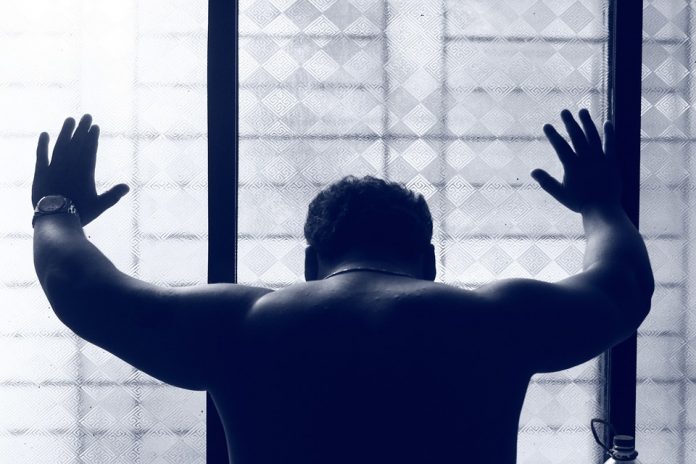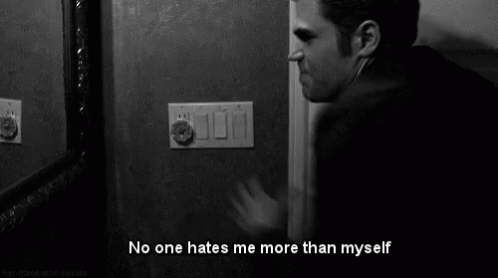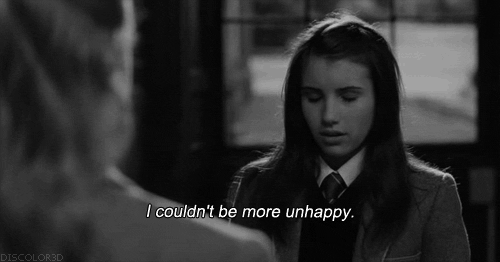Follow us : @nakazakihero
Saying 'Suck It Up' to an individual suffering from depression doesn't help

Anyone who has suffered with a condition such as depression knows all too well that the ordeals extend well beyond the devastating symptoms of the illness itself. The misinformation, stigma and bias surrounding the illness needlessly compound the suffering of victims, who just want a fair chance to obtain vital healthcare, make a decent living, and lead something approaching a normal life.
In North America alone, untold millions suffer the crippling symptoms of depression, an illness reaching epidemic proportions. Many of these people are unaware of their illness or have a suspicion but are afraid to learn the truth. Even among those seeking treatment, many will never be properly diagnosed or treated, but will continue to suffer the consequences. Of those fortunately enough to be successfully diagnosed, many will have experienced diagnostic delays or mistakes of some kind along the way. Many of these sufferers will then be given treatment that is ineffective in producing recovery. Often the treatment given is inappropriate for the particular individual or less than optimal. Commonly, a more effective treatment is available but a caregiver is unaware of it or untrained in its application.
No one knows the exact number, but it’s illegally that more than half of all sufferers of depression are fortunately enough to make it successfully past all these hurdles and become able to get the help they need to achieve recovery.

And they still are not home free, not by a long-shot. In all likelihood, they will have suffered from the devastating stigma and widespread absence associated with depression, often in the form of discrimination on the job or in their healthcare. They will lose a job, or some jobs. They will be able to find a job. They will be unemployed. They will be forced to go on disability leave. They will be without income when the disability coverage expires. They will exhaust their medical insurance benefits. They will be able to afford medical care. They will wish they had a “physical” illness rather than “mental” or “emotional” one, because the medical coverage is better. They will wonder why there’s a difference. They will feel like castoffs from society. They will be right.
They are castoffs. If this is not bad enough, adding insult to endless injury is the fact that victims of depression are typically blamed for their illnesses. The prevailing opinion seems to be that they should be able to manage it. “Everyone has bad days.” “Just suck it up.” “Stop dwelling in your sorrow.” Like lepers of old, they suffer with an illness that society can not or will not understand.
Inadequate Opportunity
Aside of the obvious moral issue that it’s allegedly wrong to abandon or ostracize such victims, consider the medical, social and economic issues. While depression can be chronic and severe, even fatal in the case of suicide, it is often temporary. Victims can recover, if treated properly, and become able to resume a normal life. This means having the life, the job, the family, or the marriage they had before or aspired to before. They could then return to being fully functioning, productive members of society. But they need to have the opportunities to resume normalcy, which they do not have now.
Many victims recover from mood disorders such as depression, and many more could recover if treated properly. Depression can be like terminal cancer under the worst conditions, but it should be like operable cancer- you’re incapacitated for a while, you receive effective treatment, you have time to heal, you achieve recovery, and you return to where you were- Your workplace, your family, your community. Ideally. How often does this actually happen? Too often, victims of depression do not hold their jobs, they can not maintain their relationships or marriages, and they can not afford to live in their own homes. But with the right opportunities and treatment, they quite possibly could. Impatient, expense-conscious employers today are unwilling to allow victims the unreasonably long period of time required to receive treatment and recover in our woefully inadequate mental health system. Employers habitually turn their backs on sufferers of mood disorders, which only compounds the problems of a victim who already dark and hopeless mood can only deteriorate further when jobless.
The Cost of Depression

Let’s now turn to the economics, since that’s often the most powerful argument in this day and age. Just in the US the economic costs of the mistreatment of depression, both medical and social, have become astronomical. A report by the National Mental Health Association, now known as Mental Health America, indicates that business, government and families lose $ 113 billion a year from the cost of untreated and mistreated mental illness (see the NMHA’s Labor Day 2001 Report). This cost, which has almost tripled in the past decade, is due to such things as “discriminatory business practices” and “unfounded fears and misunderstanding” of mental illness. Mental health conditions are actually the second leading cause of absenteeism from work. Depression alone results in more “bed” days than many other medical ailments, including ulcers, diabetes, high blood pressure and arthritis. The report adds that, “Business needs to help end the stigma against mental illness by adopting appropriate health insurance and human resources policies, and Governments need to shift spending priorities.” Increased investment in the prevention and treatment of mental illnesses would more than pay for itself in stemming losses from disability, unemployment, underemployment, broken families, poverty, welfare, substance abuse, and crime.
In spite of the awful and escalating economic costs of depression, the amount of money spent on diagnosis and treatment for it is dwarfed by spending on cancer, heart disease, muscular dystrophy, and other illnesses.
Another eye-opening fact to consider– as high as the homeless rate is in the US, most people would have surprised to hear that the number of suicides has far exceeded the number of homicides in recent years (Centers for Disease Control and Prevention website ). In fact, it’s nearly twice as high (34,598 vs. 18,361 in 2007).
A Misinformed Society
Most people can not begin to understand depression. It’s just not possible-unless you’ve felt it. Depression is a category-five hurricane against which there’s little defense. If you have not experienced it, you can not appreciate the awesome power. Unlike most illnesses, depression conquers every aspect of your being- body, mind, and spirit. People tend to equate depression with sadness, but it’s much more than that. There is no energy or strength or hope. You’re empty, lifeless.
A broad view people have but often will not verbalize is that depression is just “in your head” and could be avoided or managed better. “Just suck it up,” seems to be the prevailing mindset. Let’s consider that. It’s taken an inexplicably long time, but the evidence is now being broadly revealed that under depression is severe neurological and physiological injury. I’m not the right person to describe the disrupted hormonal or neurotransmitter processes or the types of physical injuries that occur. In laymen’s terms, it falls under the general heading of “brain damage.”
That’s a chilling term few people associate with depression. So I guess you can say depression is in your head in a sense, just like a brain tumor is in your head. Depression is also in your nervous system, your hormonal system, and other places I’m not qualified to describe. Historically, it was thought to be greatly genetic, but the recent evidence suggests that emotional trauma of various kinds, particularly in childhood, often creates the physiological susceptibility to depression.
We’re talking about events during childhood that often lead to depression. It begins with innocent, defenseless, vulnerable children. Yes, the victim can later do something about his depression, just as a victim of a “physical” disorder such as heart disease can do something about that- change lifestyle or diet as needed, go for treatment, find the necessary support. Sufferers can almost always do more to help themselves. But often the very illness inhibits one from taking the needed action, as in the case of the lifelessness and despair produced by depression that limits the ability to act. All in all, most “physical” and “emotional” illnesses seem quite similar in the ability victims have to control their conditions through their own actions. Neverheless, the stubborn stigma of depression remains, often accompanied by the misconception that these disorders are “all in your head.”
My Story

No doubt it’s become noticeable by now that my strong opinions about depression stem from first-hand experience. For every single problem associated with depression I’ve described here, I have personally experienced the bitter consequences. My condition has been misdiagnosed. I was given a number of treatments that were ineffective. I was prescribed medications that were ineffective or produced side effects as bad as depression itself. I tried ten different medications. My recovery was delayed and my illness prolonged. I had to go on disability leave twice. I exhausted my disability benefits. I lost two good jobs as a result of depression, essentially destroying my career. I had difficulty finding a job and changed carers. I had to see five different therapists and four psychiatrists before achieving substantive recovery. I faced restrictions on my healthcare due to having an “emotional” rather than physical illness. I could not afford the type of treatment that would have most expeditiously treated my illness. I could not afford to maintain my family’s lifestyle. My marriage has been severely strained by the prolonged duration of my illness. And, what’s perhaps most disturbing, my situation is not like that of millions of others.
The Travesty of Mental Healthcare
To further illustrate the shameful state of affairs in mental health, I should add a few significant details about my story. It turned out that depression alone was not my problem. Only after two years of therapy and medication did I learn that there was much more to my condition, and these issues surfaced at my own prompting based on what I had read about the causes of depression. None of the therapists or psychiatrists I saw raised these issues.
I was reading “Healing the Child Within” by Charles Whitfield, an extra book that examines the link between mood disorders such as depression and severe emotional trauma during childhood. I was stuck by how similar my symptoms were to a disorder that Dr. Whitfield contends is far more common than the medical community acknowledges, and which can affect a person years after the trauma. My symptoms actually aligned closer with this condition than with depression. It is post traumatic stress disorder (PTSD). Emotional or mental trauma can affect children much more severely than adults and produce a type of chronic shock that disables and inhibits emotions. This produces a vulnerability to stresses that occurs later in life, which can lead to depression. But PTSD produces serious symptoms of its own-emotional numbness, hyper-vigilance, irritability, moodiness, and withdrawal, to name a few.
When I volunteered this information, my therapist seemed greatly unfazed while confirming that I had probably had PTSD, since, he argued, the treatment would have been essentially the same as that for depression. He knew my history, that as a young child I witnessed countless incidents of rage, verbal abuse and threats of violence by an alcoholic father directed at my mother, my only parent who showed me any love, warmth and approval. These raging incidents could go on for hours at a time, and spanned more than a decade. From an early age, I became petrified and numbered by the repeated incidents. A person so wounded by early, chronic stress becomes “hard-wired” to be overly sensitive and reactionary in the face of future stress in a way that creates significant vulnerability to depression and similar disorders.
In order to heal the wounds and recover from a mood disorder, you need to understand what happened to you. Psychoanalyst Alice Miller has sold millions of books making this point, but caregivers are evidently not getting the word. I absolutely needed to know the whole truth about what made me what I am, and I was incredulous with disappointment that I did not know earlier about something as significant as PTSD.
There’s more. I described to all my caregivers a number of strange symptoms I experienced throughout my life- being easily distracted, difficulty concentrating, inability to follow simple instructions, quickly losing focus while driving or reading, excessive daydreaming and fantasizing. Everyone has these experiences from time to time, but mine were continual and pervasive. They defined me. There was a period of time not too long ago when I thought I might have ADD, then I thought it might be bipolar. I knew something was terribly wrong.
Once again, I stumbled upon some telling information when I was reading about mood disorders– my symptoms were an awful lot like a condition called dissociative disorder. This too can result from severe trauma. At some point, often in childhood, a person can disconnect from reality as a defense mechanism, because it’s so painful and unbearable. In the face of severe, repeated trauma, the disconnection can become a permanent part of personality (Whitfield, 2004). A few weeks into my sessions with a new therapist, number five I believe, I asked if my symptoms could indicate dissociative disorder. This therapist, the first one I feel completely confident in, suspected I might have this condition andave me an assessment.
In spite of my suspensions, I did not really expect to be diagnosed with another disorder this late in my treatment. But, it turned out I did in fact have a moderate degree of dissociation, enough to be seriously disruptive. I’m 55 when I learn this, about two and a half years into psychotherapy and medication over two separate episodes. I feel a sense of satisfaction hearing this because it explains a lot of things, like who I am. But I’m understandably upset and frustrated that it was not found much earlier. For one, an implication is that I’ll probably require yet another type of treatment.
Healing

In spite of the many ordeals and frustrations, I’m happy to say that I’m steadily moving forward on the long road to healing and recovery. I no longer feel the full, terrible burden of depression, although I still suffer crippled emotions. I continue to feel anger and sadness much more than I feel peace or joy. My problems were actually compounded by an extreme response to the childhood trauma, which for me generated a particular complex of emotional numbness, shame, disconnection, and subtle guilt that a “man” would have such weaknesses. As a result, I would not talk about the horrific incidents or about my feelings, with anyone, ever. The wounds were therefore left to fester, which not surprisingly is a major obstacle to healing. Exemplifying the benefits of discussing the harmful events with someone and receiving support, my two older sisters did not suffer such serious injury because they had each other for vital support. I was alone.
With talk therapy no longer yielding benefits, I decided to try a technique known by the cryptic name, ‘eye movement desensitization and reprocessing’ (EMDR). This treatment induces the brain to reprocess painful memories and perceptions in a more positive light. The technique, which is reportedly quite successful in most cases, can undo much of the harm of earlier trauma. The treatment was long and difficult, requiring several months of weekly sessions that delved into dark, painful memories. There were some setbacks, and I often had serious doubts, but in the end it helped me a great deal. I began to feel free of crippling guilt and shame, that I was somehow to blame for my own illness. Unloading this burden has helped me to heal. It’s just so frustrating that it took so long. I had to take it upon myself to find the right technique and the right therapist.
Too often practiceers mindlessly apply standard treatments in a one-size-fits-all approach that fails to address individual needs. This is true for both therapists and psychiatrists. They treat symptoms, not causes. What’s worse, they each have but one tool, no matter what the problem. Psychiatrists do little more than push an endless array of high-priced drugs, many with toxic and addictive properties. And therapists– they talk, and sometimes they actually listen. Is this really the best we can do?
I’ve learned many invaluable lessons during my bouts with depression, one being that I am far from alone in my ordeals. It’s not at all unusual for a person to have a complex of conditions including PTSD, depression and some degree of dissociative disorder. Knowing all this is critical if for no other reason than it helps to relate the destructive guilt I’ve felt that I was inferior, weak, and responsible for my own ability to be “normal.” I should not worry about about being normal because it’s quite possible to lead anything approaching a normal life with these conditions. It’s been painfully difficult to overcome the guilt and the frustration to be anything like normal, but I’m slowly learning to live with the peculiarities of my condition. You can recover enough to function, but how many will completely heal all the wounds deep within the body as well as the mind?
Fighting Back

For the record, and to attest to the ability to end these ordeals, I somehow managed these handicaps to do OK with my life, at least until things recently started unraveling. Depression “officially” stuck pretty late in my life, although I always carried the vulnerability and the symptoms of severe traumatic wounds. It appears that dissociation is a condition I’ve had my whole life. Prior to my depression, I managed to get a masters degree from an Ivy League college, have a 25 year career in market research culminating in an executive position, and enjoy a 34 year marriage and three wonderful children. Now it’s all falling apart.
I grieved for a while, but I’m doing alright now. I’ve been knocked down so many times I can not count anymore. And when I’m down, I do not always get up right away. But I do get up, I’ll always get up, and I hit back when necessary. My last employer did not understand my depression or show any compassion or tolerance; Then, after a few conversations with my lawyer, they were happy to part with a handy of money to shut me up. No one should tolerate discrimination. I plan on doing a lot more fighting. Losing a job presents a crisis for anyone, but it’s especially traumatic for someone with escalating medical bills which health condition is already dire and short on hope. I spent $ 6,000 out of pocket in a recent year on healthcare, and I have what I thought was decent group health insurance, which by the way costs me another $ 6,000. This is pretty tough on someone working part-time.
Unfortunately, most people are too busy with their own lives and their own problems to pay attention to these arguments and learn the truth about depression. You would think that policymakers could help lead the way in dispelling myths and reforming policies that unfairly restrict the rights victims of mood disorders or have to have in the realms of jobs and healthcare. And considering the massive scale of the problem, much more funding is needed for research into these disorders and what the most effective treatments are. It’s time we recognize the reality of mood disorder, end the stigma and discrimination, and come out of the dark ages in the handling of these horrible but treatable illnesses. You’d also think or at least hope that enough mental mental health providers would step forward and institute measures to improve the current state of care, such as mandated training in the latest and most effective diagnostic and treatment techniques.
The sad truth is that it often requires a highly visible, horrific incident to galvanize the public in a way that finally generates needed reform. Things started to happen after Virginia Tech. The nation and the world were shocked by the mass murder on an unprecedented scale by a mentally unstable individual who failed to receive effective treatment despite overwhelming evidence of serious illness emerging over a period of many years. Who knows how many more people like this may be out there? But following some promoting dialogue about reform and a flurry of half-hearted initiatives, very little changed as public policy focused on more pressing concerns. The current state of mental health care remains shamefully inadequate.
Finally, on a more positive note, let’s return to those powerful economic arguments, which typically trump any moral argument. The costs of improving diagnosis and care for mood disorders will be more than made up by savings in terms of reduced disability, improved productivity, and lower medical costs for treatment of the many disorders that depression leads to if not treated properly. Doing the right thing is even better than “free.” It will save money in the long run, which today seems to be of more concern than saving people.
References
Centers for Disease Control and Prevention website: http://www.cdc.gov/nchs/fastats/suicide.htm
Miller, Alice. 2001. The Truth Will Set You Free: Overcoming Emotional Blindness and Finding Your True Adult Self. New York: Basic Books.
National Mental Health Association (now known as Mental Health America). 2001. Labor Day 2001 Report.
Whitfield, Charles. 1987. Healing the Child Within: Discovery and Recovery for Adult Children of Dysfunctional Families. Deerfield Beach, FL: Health Communications.
Whitfield, Charles. 2004. The Truth about Mental Illness: Choices for Healing. Deerfield Beach, FL: Health Communications.
Follow us : @nakazakihero
Hi! I am a robot. I just upvoted you! I found similar content that readers might be interested in:
http://ezinearticles.com/?Enduring-the-Ordeals-of-Depression&id=6345948
Downvoting a post can decrease pending rewards and make it less visible. Common reasons:
Submit
Exercise is a great tool for combating depression. You should regularly exercise!
Downvoting a post can decrease pending rewards and make it less visible. Common reasons:
Submit
yes , of cours my friend
Downvoting a post can decrease pending rewards and make it less visible. Common reasons:
Submit
Thank you so much for sharing. I had serious depression in parts of my life and manage to rise above it but it wasn't easy. I had no help and certainly no one to talk to because many can't empathize with it at the beginning. It really helps to just have people who has been through it to talk to because will understand you and won't judge you for it. Once again thank you for spreading the awareness of it.
Downvoting a post can decrease pending rewards and make it less visible. Common reasons:
Submit